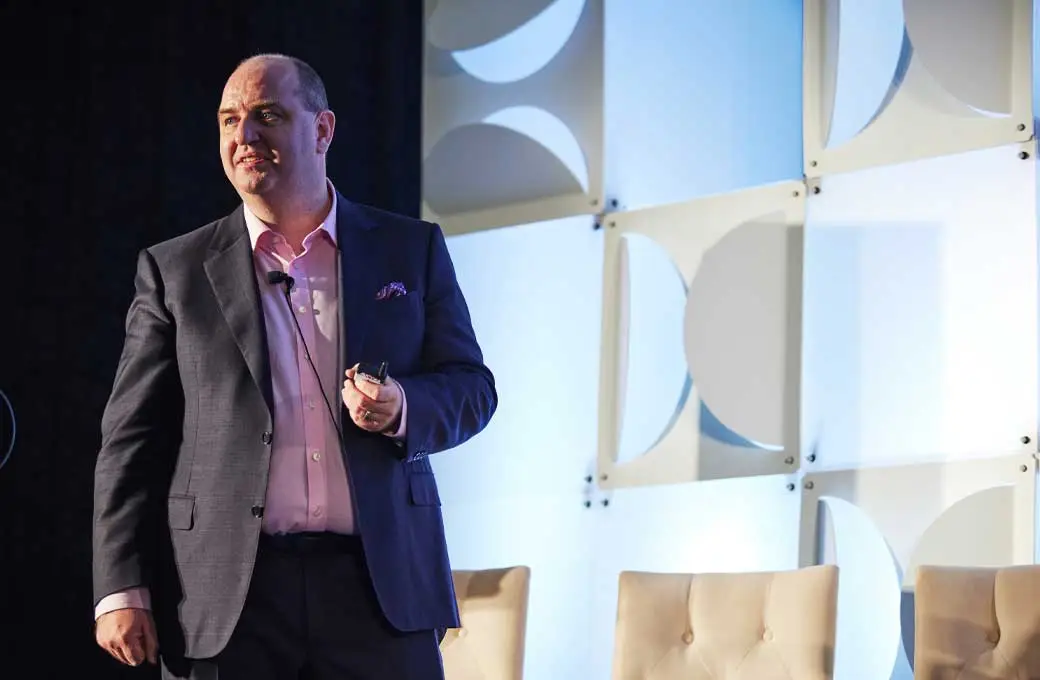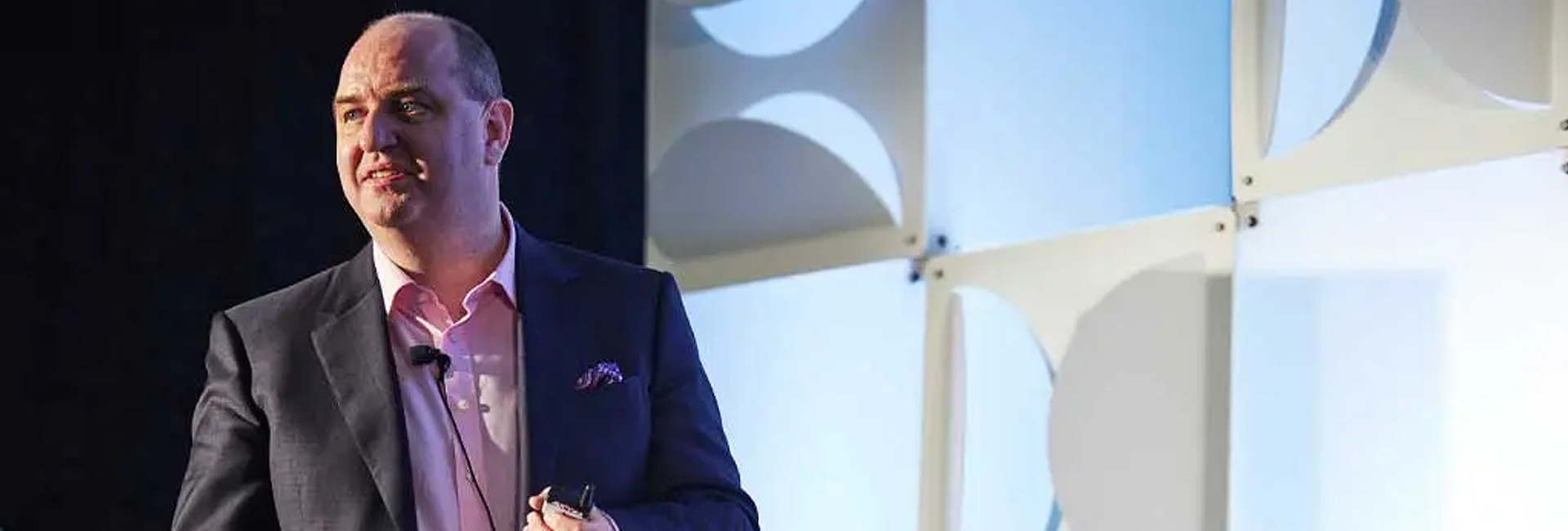This article is compliments of Hotel and Restaurant Times
Wednesday, March 29, 2023
An ethical approach by Sean O’Driscoll, CEO of iNUA hotel group
An ethical approach
Sean O’Driscoll, CEO of iNUA hotel group and co-founder of Cliste Hospitality, on navigating the challenges faced by hospitality businesses in 2023, the challenges of high prices and reduced bed stock in Dublin, and prioritising employees.
Sean O’Driscoll is conscious of the needs of hospitality businesses in Ireland. And something the industry does not need at present, he believes, is a 4.5% hike in VAT. The executive director of iNua and co-owner of Cliste Hospitality, describes his response to the government’s recent decision to retain the 9% rate with a single word: relief.
“I think the VAT rate going up would have been the final nail in the coffin,” O’Driscoll tells Hotel & Restaurant Times. “I’m relieved the government decided to leave the lower VAT in place until the end of August 2023 because I’ve seen the profit and loss accounts of 40-seater restaurants and I know they’re underwater.”
Amidst a cost of business crisis, iNUA Hospitality PLC has felt the pinch. The company owns eight hotels: four Radisson Hotels in Cork, Limerick, Athlone and Sligo; Muckross Park Hotel in Killarney (where O’Driscoll served as GM for six years); the Kilkenny Hibernian Hotel, the Tullamore Court Hotel, and the Hillgrove Hotel in Monaghan. In 2022, the group’s energy bills equated to €10.10 extra for every room they sold, compared to 2019.
But iNUA has weathered the storm. Its group status afforded it the ability to conduct deals with suppliers and minimise the impact of price hikes on customers. Other areas of the industry have not been so efficient. “I don’t condone what some hotel operators are doing in Dublin,” remarks the CEO. “Price gouging is indefensible and wrong. I think it’s doing the industry a lot of damage. Customers need to vote with their feet. A lot of the areas of the sector we’re talking about are not members of the Irish Hotel Federation. They are hostels, self-catering accommodation, Airbnb’s. But they appear on Booking.com.”
O’Driscoll believes the government is in part responsible for high prices and reduced bed stock, particularly in the capital. In April and May of 2022, the government took some 8,000 beds out of the Dublin market to accommodate refugees from Ukraine, leading to diminished capacity.
The CEO is “proud Ireland is doing its part for the Ukrainian people. We support them. I don’t want to see a situation where we don’t have accommodation for Ukrainian people in the country. But I’m calling on the government to work harder to find alternative accommodation so the hotel sector isn’t carrying this burden on its own. The government needs a medium-term strategy and I don’t think they have one. There are up to 10,000 beds in Dublin controlled by the government/local authorities at the moment. It’s hugely damaging to our international tourism recovery.”
O’Driscoll’s dual role in iNUA and Cliste gives him a wide overview of the needs of the hospitality industry. Under his Cliste mantle, he and partner Paul Fitzgerald manage iNUA’s eight properties and three other hotels on behalf of individual owners: Fairways Hotel in Dundalk, the Dublin One Hotel, which is close to Cork Park, and Ariel House Hotel, next to Lansdowne Road. Last year, iNUA’s eight hotels had 75% occupancy, up on 2019 and revenues grew about 15% from €56m to €64.5m.
During COVID, between 2020 and 2021, iNUA experienced €70m in lost revenue, so 2022’s result was a pleasant surprise. It was driven, remarks the CEO, by the strength of these properties in the domestic leisure market. There was a huge backlog in weddings after COVID. In 2022, 428 weddings were conducted across the group. Food and beverage was strong. Why? Because people wanted to get back out and dine after two years of lockdowns.
International and corporate business lagged behind, with multi-national corporateeventually picking up in September 2022. That business has now recovered. “Quarter four was very good for conferences and meetings. Companies were getting their teams together again for training, business planning, and social events. In 2023 we’re seeing strong recovery in corporate business.”
iNUA and Cliste have a pipeline of hotel purchases and management contracts in store for 2023. Last year, Cliste purchased The Viaduct, a bar and restaurant in Bishopstown, Cork, which the group redeveloped into a restaurant, cafe and food store. The outlet opened in September 2022 and is trading well.
“Cliste recruited David Jordan as director of strategy, research and innovation. David has helped us look wider than just hotels. We are expanding outside traditional hotels and looking at the wider hospitality and tourism space. A lot of people in the Cliste team have worked in various areas of hospitality: bar groups, restaurant groups, self catering and other tourism products. So now we’re looking at wider hospitality product development.”
Like every other hospitality business, iNUA hotel group has struggled with staff shortages. The PLC lost 40% of its talent during COVID. But through innovative HR, the group has built back up to 1,450 employees. O’Driscoll notes that Irish hospitality and tourism now employs “nearly 240,000 people, which is a phenomenal achievement considering what the industry has been through”. iNUA works hard to retain, motivate, and incentivise its employees. Alongside an increase in pay rates, the company focuses on flexibility.
O’Driscoll explains: “We’re working with employees on their work-life balance. If a parent has to drop kids to school in the morning, come into work for a couple of hours but be finished by 2.30pm, we accommodate that. If someone is going to college part-time, we work around their college hours.” The group has a raft of incentives. “We benchmark ourselves against companies outside hospitality: multinational employers, supermarkets. We have an employee pension contribution, a healthcare contribution, and we pay maternity and paternity leave. These aren’t standard across hospitality. These need to become standard if hospitality is going to compete with other sectors.”
iNUA recognises its employees through programmes such as a “Thank You Thursday” celebration and award schemes. It runs an employee assistance programme, via Laya Healthcare, and has educational incentives. O’Driscoll explains: “We pay the college fees of people who want to pursue a career in hospitality, and support them with accommodation.”
Employees studying the training management program in Tralee can avail of free accommodation at Muckross Park. Chefs training with the Limerick and Clare Education Training Board, are granted complimentary accommodation at the Radisson Limerick hotel. iNUA also helps find housing for international employees.
The business is currently focusing on technological innovations. Over the next six months, online check-in will become available in all its properties. The hotels are trialling iPads in each bedroom, allowing guests to order room service or book spa treatments without having to call reception. New employees can undertake induction courses online, and the company is developing AI chatbots for their websites. “Sometimes chatbots can be very frustrating, so we want to develop ones that aren’t frustrating and give guests the answers they’re looking for. A lot of our guests want a human interaction, a personal touch and the service experience. So, we’re careful about how we use technology. We use it for people’s convenience.”
Sustainability is another key component within the company’s ethos. “We are doing everything we can to reduce our carbon footprint,” notes the CEO. “We’re investing €500,000 this year on energy efficient plans across our properties. In hotels you might have older boilers, hot water storage, pumps, leisure centres. Replacing these can make huge energy savings and reduce our carbon footprint.”
iNUA is making efforts to buy its electricity from renewable sources and has a food waste tracking programme in its kitchens. This programme, since its introduction in 2022, has “reduced our CO2 emissions by 404 tonnes and we’re targeting a 50 percent reduction in food waste across the company”. A group procurement department is lobbying suppliers to reduce wasteful packaging in products. Furthermore, every hotel with a car park within the group has introduced electric vehicle charging points.

Sean O’Driscoll believes the company’s ethical responsibilities must extend to other aspects of society. The group has been in a relationship with Down Syndrome Ireland since 2019, raising €70,000 for the charity over the last two years. “A lot of that money has been raised by employee initiatives: fund runs, cake sales, events throughout the year. We have eight people with Down Syndrome working in our hotels and we want to grow that number. They’re fantastic colleagues. They’ve built friendships in the teams in the hotel. As a country, we’re not where we should be in terms of employing people with disability. I think all of us as employers have a responsibility to do that. So, we’re looking at other areas of disability as well and how we can make our workforce more accessible to people with disabilities.”
In 2022, Cliste held its inaugural Perspectives Conference in Dublin, at which the keynote speaker was Alastair Campbell. Another event is planned for later this year. The purpose of the forum, remarks the CEO, “is to bring hotel owners together with investors and banks and lenders: a networking opportunity. This year it is scheduled for 18 October. We have a couple of themes prepared, but we will look at where the industry is in August and September and adjust the programme to make sure it deals with the macro situation at that time.”
The government’s decision around VAT retention, for example, is likely to dictate events. “I’d love to see the VAT extended further. I don’t think that’s going to happen,” he says. “I think it is going to be very hard, particularly for food businesses, if they have to work off a higher VAT rate of 13.5%. If the government is not willing to look at the VAT rate in total, maybe they could separate out the food VAT rate. I think the Department of Finance could do whatever they set their mind to and I think it could be done.”
Other issues might include Ireland’s slow permit system for bringing in experienced hospitality professionals from abroad, and Northern Ireland’s potentially promising future following the Windsor Framework. “We have an ambition to invest in Northern Ireland in the coming years as part of Cliste,” said O’Driscoll. “Northern Ireland will benefit hugely from an agreement happening. I think it’ll have a huge impact. There’s been people holding off potentially investing in Northern Ireland because the uncertainty of the situation.”
Despite his concerns over the cost of business, O’Driscoll is optimistic about the industry’s performance in 2023. “Domestic demand is still extremely strong. Six months ago, I thought we might have a slight recession. That hasn’t happened. We have full employment. Exchequer numbers are good from a government point of view. There’s a lot of household savings in the country as well. People want to enjoy themselves. The signs are very good.”
Meanwhile, regional areas of the country have been happy to pick up the slack afforded by reduced bed stock and high prices in the Dublin market.
“Because of the situation in Dublin the regional airports are performing above 2019 pre-COVID levels. Shannon’s at 119% of airline seats it had in 2019. Knock is at 113% and Cork’s at 108%. So, it is helping the regional distribution of tourism.”
Every cloud…

